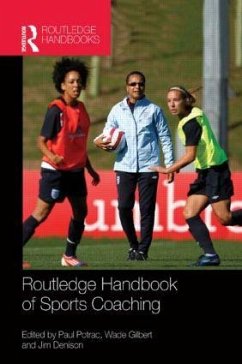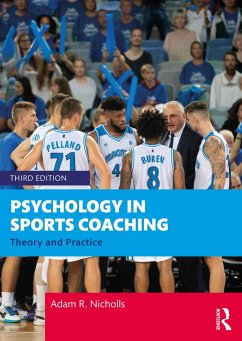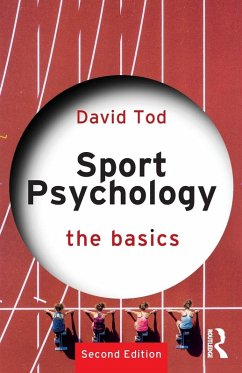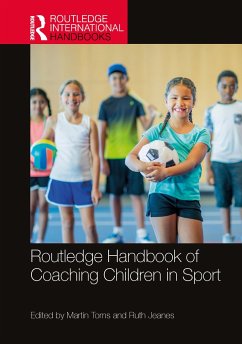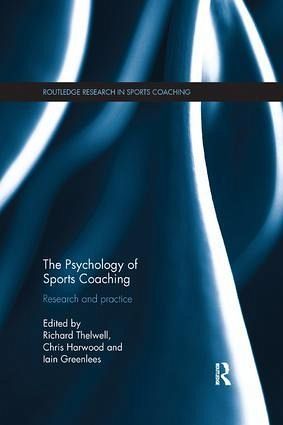
The Psychology of Sports Coaching
Research and Practice
Herausgegeben: Thelwell, Richard; Harwood, Chris; Greenlees, Iain
Versandkostenfrei!
Versandfertig in 6-10 Tagen
56,99 €
inkl. MwSt.

PAYBACK Punkte
28 °P sammeln!
This is the first book to offer a comprehensive review of current research in the psychology of sports coaching. It provides detailed, critical appraisals of the key psychological concepts behind the practice of sports coaching and engages with contemporary debates in this field. Organised around three main themes, it discusses factors affecting the coaching environment; methods for enhancing coach performance; and how to put theory into practice through coaching work.Written by an international team of researchers and practitioners at the cutting edge of psychology and coaching, each chapter ...
This is the first book to offer a comprehensive review of current research in the psychology of sports coaching. It provides detailed, critical appraisals of the key psychological concepts behind the practice of sports coaching and engages with contemporary debates in this field. Organised around three main themes, it discusses factors affecting the coaching environment; methods for enhancing coach performance; and how to put theory into practice through coaching work.
Written by an international team of researchers and practitioners at the cutting edge of psychology and coaching, each chapter introduces a key concept, defines key terms, provides a comprehensive literature review, and considers implications for future research and applied practice. Encompassing the latest developments in the field, it addresses topics such as:
the theory behind effective coaching
creating performance environments
promoting psychological well-being
developing resilience through coaching
transformational leadership and the role of the coach.
The Psychology of Sports Coaching: Research and Practice is an indispensable resource for sport psychologists and sports coaches, and is essential reading for all students and academics researching sport psychology.
Written by an international team of researchers and practitioners at the cutting edge of psychology and coaching, each chapter introduces a key concept, defines key terms, provides a comprehensive literature review, and considers implications for future research and applied practice. Encompassing the latest developments in the field, it addresses topics such as:
the theory behind effective coaching
creating performance environments
promoting psychological well-being
developing resilience through coaching
transformational leadership and the role of the coach.
The Psychology of Sports Coaching: Research and Practice is an indispensable resource for sport psychologists and sports coaches, and is essential reading for all students and academics researching sport psychology.




